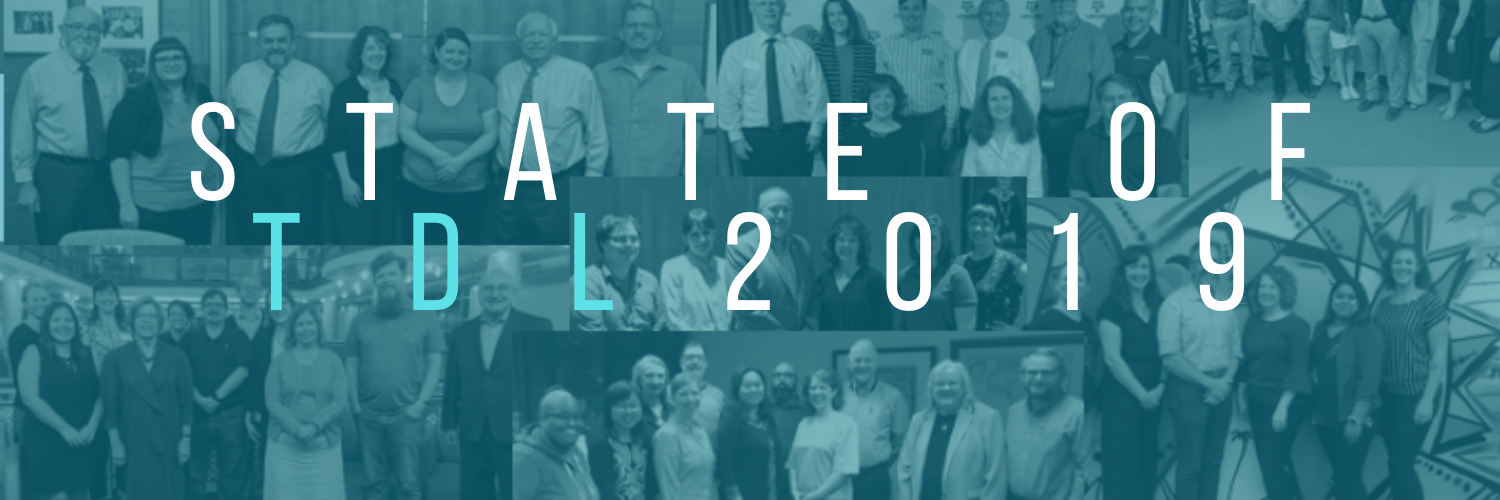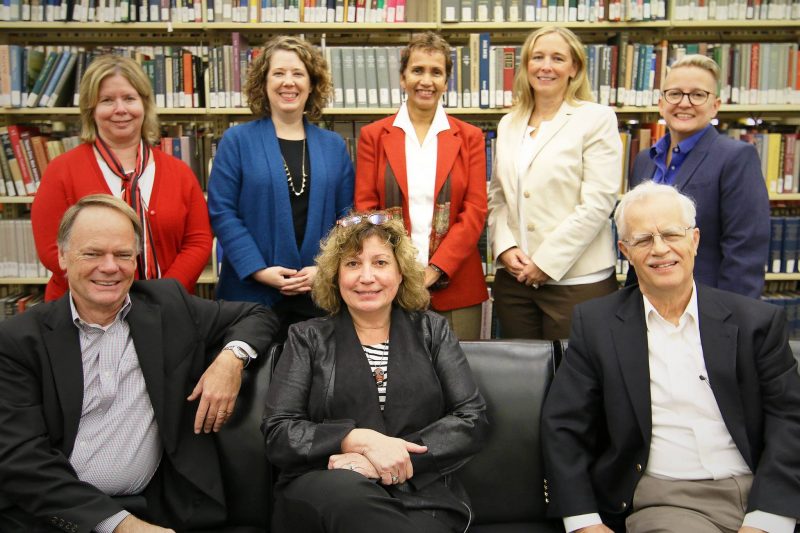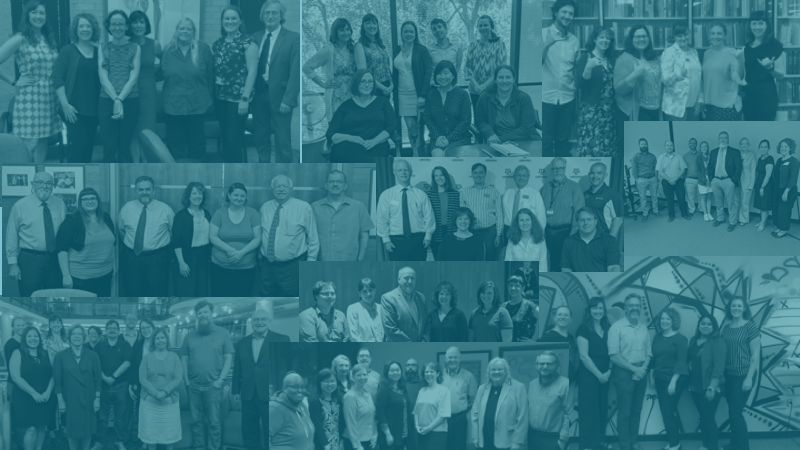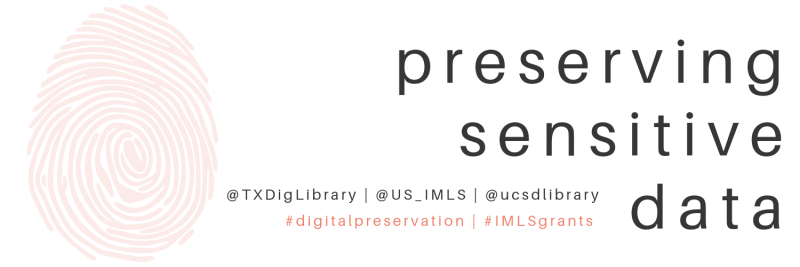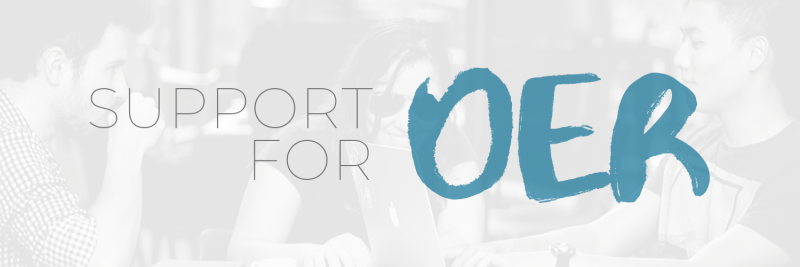The following report was delivered to the Member Board of Texas Digital Library on September 9, 2019. TDL’s Member Board meets annually, and is comprised of Deans, Directors, and proxies representing each of our member institutions. This report includes updates regarding our Governing Board, TDL’s finances, and our goals and objectives for projects and services in the coming year.
BOARDS
In fall 2019, TDL welcomed a new chair to our Governing Board – David Carlson, Dean of Libraries at Texas A&M University. We also welcomed Shawna Kennedy-Witthar of West Texas A&M, who was elected to return to the governing board for a second three-year term as an at-large liaison.
TDL expresses our thanks to the outgoing board chair, Lisa German, Dean of Libraries at the University of Houston, for her energetic and caring commitment during her year-long leadership of our Governing Board.
The 2019-20 TDL Governing Board:
- David Carlson(Chair), Texas A&M University*
- Bella Karr Gerlich, Texas Tech University*
- Lisa German, University of Houston*
- Kelly Gonzalez, UT Southwestern Medical Center
- Lorraine Haricombe, University of Texas at Austin*
- Shawna Kennedy-Witthar, West Texas A&M University
- Catherine Rudowsky, Texas A&M-Corpus Christi
- Mark Smith, Texas State Library and Archives Commission
- Kristi Park, TDL Executive Director**
- Courtney Mumma, TDL Deputy Director**
*ex officio member
**ex officio, non-voting member
And in the spirit of TDL’s ethos of transparency, we created a new collection in our repository to house meeting materials and minutes from our spring and fall Governing Board meetings as well as our annual Member Board meetings. Member Board and Governing Board materials are accessible and publicly available in the TDL DSpace Repository https://tdl-ir.tdl.org/handle/2249.1/156422.
MEMBERS & SERVICES
A total of 24 Texas-based institutions are members of the TDL consortium. Below is a table that shows our members’ service usage.
| Repository Hosting |
|
| ETD Management |
|
| Open Access Journals |
|
| Digital Preservation Services |
|
| Research Data Management |
|
FINANCIAL REPORT
TDL Finances 2016 – 2020
As you may be aware, TDL has been undergoing a transition with our membership fee structure. In the chart below, you can see that TDL had relatively stable income from membership dues over the past few years, with a slight dip in fiscal year 2018 (FY18). That dip was due to changes we began implementing that year, which brought down dues for our ARL members and restructured fees across the membership.
 We recouped some of the lost income from other parts of the membership – and you can see those dues increasing in FY19 and 20 as we phased in the increases. We’ve also added income from incremental membership growth and growth in service usage.
We recouped some of the lost income from other parts of the membership – and you can see those dues increasing in FY19 and 20 as we phased in the increases. We’ve also added income from incremental membership growth and growth in service usage.
2017 – lost Texas A&M University – Qatar, gained UT Rio Grande Valley, Stephen F. Austin State University (affiliate), and Texas Woman’s University
2018 – upgraded Stephen F. Austin State University to full membership
2019 – gained UNT Health Science Center, upgraded UT Dallas to full membership
2020 – gaining UT San Antonio
You can see one of the reasons why we made that change to the fee structure in the chart above. In FY16 before the restructuring, a little more than 60% of our membership income came from four ARL libraries. This was neither healthy for TDL as an organization or a sustainable burden for the ARLs.
By next year, we will have flipped those percentages through both redistribution and membership growth, which is more sustainable for all members of the consortium.
Operating Reserve Policy and Cash Reserve
In 2019, TDL, under the guidance of our governing board, recognized the need to develop an operating reserve policy to ensure financial stability for the consortium and our members.
Over the years, TDL has built up a significant cash reserve – more than one full year’s operating expenses – which puts us in the top echelon of similar organizations in terms of a cash reserve. However, the reserve also represents something of a liability for us for various reasons and we are thoughtfully spending it down through one-time expenditures in strategically meaningful investments, while striving to maintain a minimum 3-month emergency reserve.
The reserve amount for the current fiscal year is $270,298.
The cash reserve is what has allowed us to reduce fees for ARL members and make up the deficit in recurring income that created for us, at least temporarily. And, in 2020 we have budgeted around $135,000 in one-time expenses in a number of areas that augment our capabilities or bring benefit to the membership.
Among those is a one-time payment that will create a consortial membership in Open Textbook Network in the next fiscal year, as you can see illustrated in the chart below.
 The reserve policy governs the maintenance and use of an Operating Reserve to stabilize TDL finances, providing a cushion against unexpected loss of income, and in the worst case scenario, assuring sufficient funds for an orderly shutdown of the organization (albeit risk is very low for either scenario to occur).
The reserve policy governs the maintenance and use of an Operating Reserve to stabilize TDL finances, providing a cushion against unexpected loss of income, and in the worst case scenario, assuring sufficient funds for an orderly shutdown of the organization (albeit risk is very low for either scenario to occur).
The policy is available in TDL’s DSpace Repository: https://hdl.handle.net/2249.1/156437
STRATEGIC OBJECTIVES FOR 2020
TDL has outlined the following goals and objectives for the coming year.
Complete multiple levels of strategic and service planning.
For reference: TDL Vision 2020
- Member Census and Survey (through January 2020)
- TDL has completed 21 member visits from February to October 2019.
- Three remaining member visits are scheduled.
- TDL sent a survey to be completed by each member institution. The findings of which will be shared in a report in early 2020.
- Staff synthesis and planning (Spring 2020)
- Board-level strategic planning (Summer 2020)
- On-going: Road-mapping for each hosted service and each project.
Maintain and enhance core services and infrastructure.
- DSpace: DSpace 7 and user group-led enhancements (e.g. accessibility compliance, better reporting)
- Vireo 4: Upgrades in 2020
- Systems automation and integration
- TDR: New research data use cases
- Planet Texas 2050 Grant funding for Remote Storage Agent implementation
- Partnership between the Texas Advanced Computing Center and TDL to allow TACC researchers to keep their data at TACC while citing it via Dataverse
- Funding for dedicated software developer
- Texas Tech, Texas State, and others have expressed interest in using local storage for data, especially larger data.
- DPS: Private and sensitive data storage
- IMLS-funded Planning Grant – One Year Project starting September 1, 2019 through August 31, 2020: Preserving Sensitive Data in Distributed Digital Storage Networks
- Develop a nationwide model for a DDP service that would close gaps in current preservation offerings for sensitive data
- Partnered with UCSD and the San Diego Supercomputing Center, TACC, and several others including TDL members UT Southwestern Medical Center and UNT Health Science Center
- IMLS-funded Planning Grant – One Year Project starting September 1, 2019 through August 31, 2020: Preserving Sensitive Data in Distributed Digital Storage Networks
Expand services to meet needs expressed via member feedback.
- OER Support
- Open Textbook Network Membership
- All Regular and Consortial Members included in the membership. No additional service cost. Two components of OTN membership for TDL members:
- 1) Regional OTN Workshops (3 workshops)
- 2) OTN Summer Institute (6 seats)
- OTN Workshops:
- 2 scheduled for Spring 2020 and 1 scheduled in Fall 2020.
- Train-the-trainer workshops prepare campus leaders to implement OTN’s OER faculty incentive programs on their campuses.
- Workshops will be free to attend and open only to TDL members.
- TDL has 6 seats at the weeklong OTN Summer Institute in Summer of 2020.
- 2 seats reserved for ARL members.
- All expenses paid (travel, registration, lodging).
- Applications will open in November.
- All Regular and Consortial Members included in the membership. No additional service cost. Two components of OTN membership for TDL members:
- TDL OER Ambassadors
- OTN Summer Institute attendees within the TDL Membership will be able to join the TDL OER Ambassadors Group.
- The group will serve to develop a Community of Practice around OER and a source of expertise for all consortium members.
- Willingness to become a TDL OER Ambassador is a requirement for application for any of the TDL consortial seats at OTNSI.
- Pressbooks membership discounts
- Regular members TDL can save 30% on PressbooksEDU Silver and Gold book production networks. Pressbooks is widely used in universities to create open textbooks, but it can also be used to create scholarly monographs, proceedings of symposia, grey publishing, course syllabi, dissertations, and more. It is also used by independent authors, publishers and small presses.
- Open Textbook Network Membership
- DPLA Aggregation
- Our new service offering, with help from TDL’s DPLA Metadata Working Group, will aggregate cultural heritage collections metadata for inclusion in the Digital Public Library of America portal.
- We plan to launch DPLA service hub with phased roll-out
- Cohort 0 (pilot cohort) Fall 2019
- Cohort 1 recruitment in Winter/Spring 2020
- Costs associated with this service:
| One-time onboarding fees | Other fees |
|
|
Develop deep(er) collaborations with members and partners to tackle complex problems.
- Enhancing TDL’s role as a convener: leveraging our resources and connections across Texas and beyond to bring stakeholders together.
- Rethinking working groups to address not just service usage but expand across services to pivot around tackling more complex issues such as outreach, assessments, and project management.
Support existing and emerging efforts to strengthen a global networked Open Infrastructure for libraries and archives.
- TDL will represent our consortium and a “pay it forward” through Open Source memberships and contributions
- We will continue support for DSpace at the platinum level and increase financial and code contribution support for other open source platforms we leverage.
- We plan to participate in the Mapping the Scholarly Communications Landscape 2019 Census.
- We will invest in Open Infrastructure (launched May 2019).
Continue growth in our academic library membership.
In the coming year, TDL seeks to partner with institutions that lack representation in our consortium, such as:
- HBCUs
- Community College Systems
- Larger public libraries
CONCLUSION
Looking back on our accomplishments over the past year and our aspirations for the year ahead, we are reminded of the contributions of our staff, our members, and our partners who help make endeavors described in this report possible and meaningful. TDL is grateful for the support of our community; we stand on your shoulders as we embark on a new decade. If you have any questions about Texas Digital Library or suggestions for improvement, please contact us at info@tdl.org.

